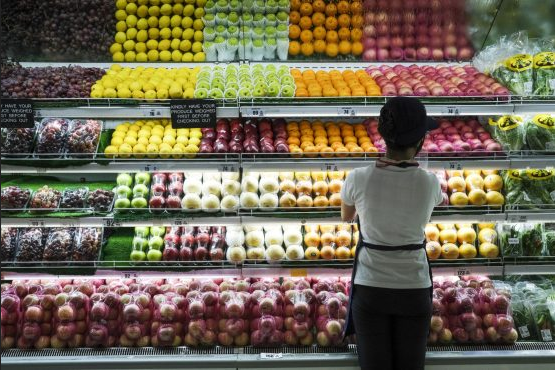By Simon Nare
Minister in The Presidency Khumbudzo Ntshavheni has warned that food insecurity could worsen in the country, despite government interventions, if certain factors are not attended to.
Addressing the 6th Annual Social Justice Summit on Achieving the Sustainable Development Goal of Zero Hunger in South at the Stellenbosch on Friday, Ntshavheni said food security must be tackled head-on now rather than later.
The minister said as the population grew and climate change intensified, the urgency of food security could not be exaggerated.
She emphasised that despite government efforts such as the National School Nutrition Programme, if unchecked, the food crisis could plunge the country into a crisis.
She called for partnerships between the private sector, civil society and the government in finding ways to ensure food security and prioritising marginalised communities.
“Innovative solutions, such as urban farming and food waste reduction initiatives, can provide immediate relief while contributing to long-term sustainability.
“We must all collaborate to address the systemic inequalities that exacerbate hunger. This means prioritising marginalised communities and ensuring that everyone has access to resources and opportunities. Food security cannot be achieved without addressing poverty and inequality,” said Ntshavheni.
She said sustainable food security was not just about having enough but rather about access, quality and the ability to produce food without compromising future generations.
Hunger was a multifaceted challenge that affected the economy, health and social fabric, she said.
Ntshavheni said for a country like South Africa that was rich in resources, it was unacceptable that millions of South Africans still faced food insecurity.
Even more puzzling was that as a food producing nation, many still experienced hunger, leading to malnutrition, stunting and diet-related diseases such as obesity.
She called for all sectors of society to pursue food security with vigour.
She suggested that for the country to achieve zero hunger, there must enhanced agricultural productivity and equitable access to nutritious food. That should involve investing in sustainable farming practices, empowering smallholder farmers and promoting local food systems.
“By supporting our farmers, we can boost food production and create jobs, fostering both economic growth and community resilience. We must promote sustainable farming methods that enhance productivity while protecting our natural resources.
“Practices like crop rotation, agroforestry and organic farming can increase resilience against climate change and reduce reliance on chemical inputs. Supporting smallholder farmers through training and access to technology can empower communities and boost local food production,” she said.
The minister said newer challenges such as population growth, the rising cost of basic food and essentials and climate change were exacerbating the challenge of food insecurity. Therefore, addressing hunger demanded systemic interventions that go went merely providing food.
She added the new challenges required education to be positioned to play a crucial role in addressing food insecurity for both the immediate needs and for future generations.
She pointed out the need to educate communities about land conservation and strengthening local food systems. Also, communities should be encouraged to support local farmers’ markets and food cooperatives.
Localised food systems could be more responsive to the needs of communities and provide fresh, nutritious food to those who needed it most. This would foster economic resilience and food sovereignty.
INSIDE POLITICS

